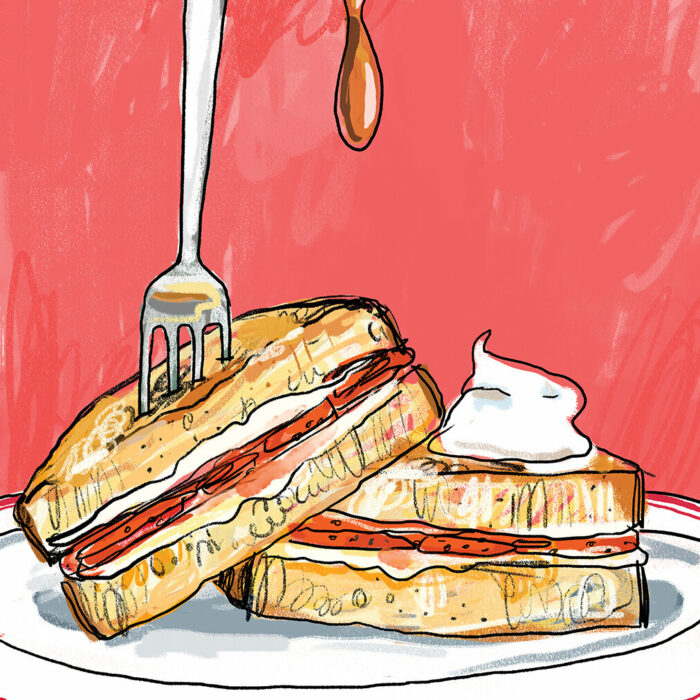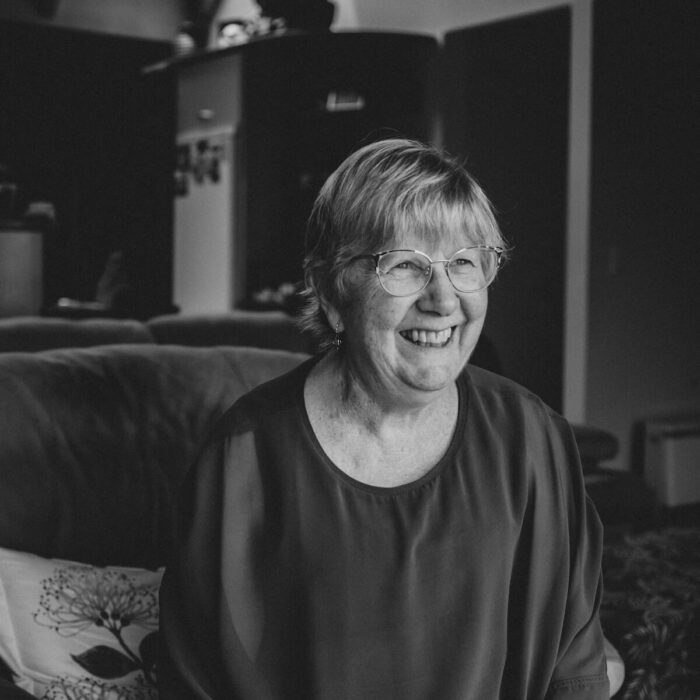04 March 2023
Good Stock
WRITER: JESSICA DERMODY
PHOTOGRAPHER: MICHELLE MARSHALL
Rakahinonga. Entrepreneur.
Born and raised on a dairy and beef farm in Wellsford, Cara Doggett is at the top of the game when it comes to Shorthorn cattle breeding in Aotearoa. Her passion for animals and her work ethic have led Cara to entrepreneurial success in the breeding scene – not to mention the international show ring – with her stud.

“I’ve now got return buyers because they know my stock are quiet,” Cara says. “You can go into a paddock with my bulls and they aren’t bothered.”
Rural primary-school calf days hold a special place in most New Zealand childhoods. A day of leading, grooming and feeding the frisky young animals – to hopefully come home with a red ribbon – is one of the biggest events on a rural kid’s calendar. For Cara, 22, it’s where her love of breeding cattle began. “Leading my calf over logs and through gates at five turned into being more competitive when I was eight, to purchasing my own purebred heifer when I was thirteen. That’s when I started my own business, even though I didn’t have enough cattle to sell until I was sixteen,” she says with a laugh.
Rural primary-school calf days hold a special place in most New Zealand childhoods. A day of leading, grooming and feeding the frisky young animals – to hopefully come home with a red ribbon – is one of the biggest events on a rural kid’s calendar. For Cara, 22, it’s where her love of breeding cattle began. “Leading my calf over logs and through gates at five turned into being more competitive when I was eight, to purchasing my own purebred heifer when I was thirteen. That’s when I started my own business, even though I didn’t have enough cattle to sell until I was sixteen,” she says with a laugh.
Cara grew up on both her dad’s dairy farm, where he kept a few beefies, and her mum’s beef and commercial farm in Wellsford. The same competitive edge that saw eight-year-old Cara take calf day at Tomarata School seriously has taken her to show rings all over the world, where she’s represented New Zealand multiple times in handler classes. Assigned a beef heifer from a draw out of a hat, the competitors get an hour before the class starts to get the heifer looking its best. “The classes are judged on how you handle the animal, rather than the animal itself,” Cara explains. “Have you ever seen those photos on Facebook of the fluffy cows? It’s literally like that. I have a hair dryer and hairspray for my cows!”
Before Covid’s impact on large-scale events, including New Zealand’s own showing scene, Cara often competed with her own cows at shows such as the Royal Easter Show in Auckland. Not only did she see lots of success, it also played a helping hand in growing her business. “People are now coming to me wanting to buy my cattle, especially when they see how quiet they are,” she says. “Shorthorns have amazing temperament; you can do anything with them. I love getting feedback. I’ve often had people say to me three or four years down the track that they still have their cows and they’re amazing, so that’s nice to hear.”
Cara’s come a long way from her first sale at sixteen: today, her stud of Shorthorn beef cows is just shy of thirty. She’s just taken the bulls away, and pregnancy testing will begin soon. “I have both breeding and commercial stock,” she says. “The breeding stock I sell for their genetics, whereas the commercial animals are fattened and sent to the works.” The Shorthorn breed are large, quality beef cattle that come in a range of colours, from red or white to roan. Cara says it’s all part of the excitement. “You never know what colour you’re going to get. They’re full of character – their personality is soft, but they can be quite sassy.”
Focusing on a productive high growth rate and milking ability, Cara’s adopted a holistic approach to ensure everything from the animal’s nutrition to their reproduction is considered. “It’s a lot more than just putting a cow into calf,” she says. “But I am a bit of a softie, the majority do have names and personalised ear tags!” While she admits some of her cattle are hard to let go of, she speaks with the clarity and decisiveness of a business owner many years her senior. “I’ve gotten to a point now where if the animal isn’t reaching my goals, they automatically become commercial – I fatten them or sell them on. I have a name for myself for having happy and quiet cattle, so if they aren’t up to that mark, they don’t get my name on them,” Cara says. Except for Berry. “Berry is my one ‘pet’ cow. Realistically, I should get rid of her. But at the end of the day, she always produces a $1,600-plus calf, so she keeps my bank account happy!

“I’ve carried on because I love it. My favourite part is when they calve and they fully dry; it’s not until then you realise how beautiful they are.”
While most Cara’s age are travelling the world on their overseas experiences, between shows Cara spends her time abroad visiting the world’s leading beef studs. “Before the pandemic hit, I spent five weeks looking around Shorthorn studs in Canada. I saw this bull and I was like, ‘I want your calves.’” She’s the first in New Zealand to try her luck with this particular bull, as Canadian genetics are not as popular as Australian bloodlines. The uncharted territory is an exciting prospect for Cara. “I got four of my cows in calf to him, and got four heifers, so that’s pretty special – you don’t often get that. And I’m absolutely blown away by these calves,” she says.
Going down the less-travelled path isn’t anything new for Cara. She’s dealt with her fair share of barriers in her business venture. The breeding game is an expensive and sometimes unsuccessful experiment – you are relying on a hand from nature, after all. But the challenges go far beyond the paddock fence. “Being young and female in this industry has had its moments,” she says. “I’ve learnt selling my bulls privately works better. Sometimes, people assume you aren’t the real breeder or real owner. That can be hard.”
However, overcoming such challenges has paid dividends for Cara, who in addition to her many showing awards, has completed a bachelor’s degree in animal science at Massey University and, more recently, was named a finalist for the Beef + Lamb New Zealand Emerging Achiever Award. “Being nominated for this award is one of those things where I feel like all my hard work is paying off. There’s been so many times I could’ve thrown the towel in, but I haven’t. I now have a good name for myself, and so do my cattle. Sticking with it is so, so important.”
The inaugural Beef + Lamb New Zealand Awards took place in Napier on 29 September and celebrated the people, technology and management systems that make the Aotearoa red meat industry world-leading. To learn more and view the 2022 winners, visit beeflambnz.com/ awards.


If you enjoyed this story, please share with someone else.
This story appeared in the Raumati Summer 2022/23 Edition of Shepherdess.
Get your hands on a copy.
Related Stories
Strawberry French Toast
Alexandra Tylee is a restaurant owner and baker who doesn’t care about rules when it comes to whipping up a recipe.


